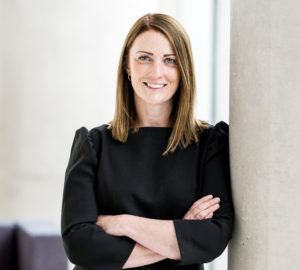The Supreme Court ruling on pay during sleep-in shifts is expected soon
Key Contact: Claire Knowles
Author: Dan Evans
The case of Royal Mencap Society -v- Tomlinson-Blake was heard in the Supreme Court in February 2020. While we await the much-anticipated decision, we take a look at the details of the case and what legal issues are in dispute.
Case overview
Mrs Tomlinson Blake is a care support worker for two men with autism and substantial learning difficulties. As part of her role, she is expected to “sleep-in” and effectively be on call, in case either resident requires support through the night. She was paid a flat rate of £22.35 plus one hour’s pay of £6.70 (a total of £29.05) for a sleep-in. If she was woken in the night, she would not be paid for the first hour, but would be paid her hourly rate for any additional hours she was awake and required to work. It was accepted she was not given any specific tasks in the night, but she was expected to keep a “listening ear”, in case either resident required support. It was accepted that she was only called to assist 6 times in 16 months.
Mrs Tomlinson Blake argued she should be entitled to be paid national minimum wage (‘NMW’) during the hours she was required to sleep-in and be on call. The Employment Tribunal and Employment Appeal Tribunal decided in favour of Mrs Tomlinson Blake.
The Court of Appeal
The Court of Appeal overturned the Employment Tribunals’ decisions, ruling that national minimum wage does not apply to sleep-in shifts unless the worker is required to work. If the worker is woken up, national minimum wage is payable while carrying out duties – not for the full duration of their sleep-in shift.
The UK minimum wage legislation covers a worker who is available to work at the workplace. The Court of Appeal have ruled that the worker is not considered as available to work when permitted to sleep at the workplace, unless the worker is woken for the purposes of working and is required to actively assist residents.
The Supreme Court’s future ruling
If the Supreme Court overturns the Court of Appeal and rules in favour of Ms Tomlinson-Blake, the care sector is estimated to face crippling claims for back pay of up to £400 million. This could result in the majority of care providers being put at risk of insolvency and many essential care homes closing. It would be prudent for care providers to begin considering the extent of its own potential back pay liability and have a contingency plan in place to prepare for this worst-case scenario. When the claim originally went in favour of Mrs Tomlinson-Blake, the Government launched a compliance scheme, to assist employers paying back its liability. There has been no announcement that this will be reintroduced again, but it is believed the Government would have to offer a level of support.
The Supreme Court judgement will provide much needed finality and clarify what the care sector’s obligations are to staff who are required to sleep-in. We will report on this judgement when it becomes available.
If you require any support or assistance on preparing communications in readiness of the decision going either way, or advice on any potential restructuring scenarios please do get in contact with Claire, Dan or Adam in our
If you require any support or advice on any discrimination issues in your business please do get in touch with Claire, Dan or Adam in our Employment Team.
Claire Knowles – Partner
Adam McGlynn –Solicitor
Daniel Evans – Solicitor








